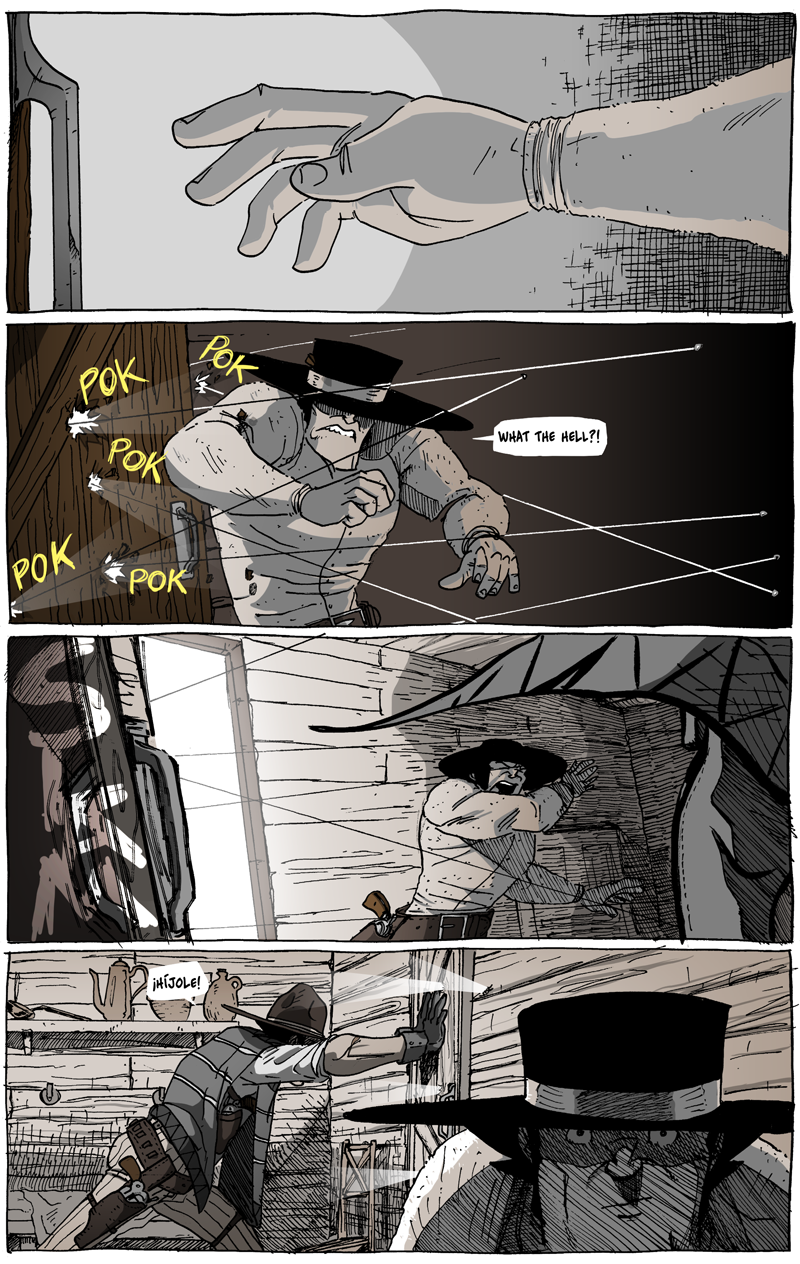Barrier to Exit
When asked to describe what the tone of Long John is recently, the words that came to mind––after serious deliberation––were “quiet,” “exhausted,” and “lonely.” This may seem at odds with what a western should be or normally is. It’s not unusual to have one of those descriptors, but for all three to be there at once, it seems to be at odds with the tropes of the genre.
I’ve said it before––and I stand by it today––that I’m not making Long John because I wanted to make a western. I like westerns. They are by no means “my” genre. I don’t mention them in a list of my likes and dislikes. I don’t rush to see every new western that pops up. Originally, I only really cared (and still only mostly care) about Clint Eastwood’s westerns. His (and Sergio Leone’s before him) stylized and mythic approach really appealed to me; it felt like I was watching a fable rather than a piece of historical fiction. I’ve branched out slightly since then; I think the only pre-Eastwood western I’ve seen has been High Noon, and I loved it. Since Eastwood changed the genre forever, I have enjoyed things like Silverado, Open Range, Django Unchained, and Sam Raimi’s wonderfully irreverent (and super fun) The Quick and the Dead.
Mostly, though, I enjoy the westerns that do interesting stuff with the genre. I’m a big fan of Get Low, Jane Got a Gun, The Assassination of Jesse James…, along with more “modern” westerns like No Country For Old Men and Brokeback Mountain (with an extra special shoutout to the abstract genius that is Rango). I appreciate these for trying to do something different and new with the genre, pushing it forward into a renewed relevance.
But none of these are of particular inspiration to Long John, I would say. If any particular genre has affected me the most over time, looking at the variety of work I’ve done, it is undoubtedly the post-apocalyptic genre. In most cases, this genre is a western wrapped in a post-civilization veneer; things like The Road Warrior, The Postman, The Book of Eli, or Children of Men undisputedly have clear lines drawn straight from them back to westerns.
I prefer a post-apocalypse that is solely (but sparsely) populated by people; no zombies, aliens, robots, mutants, etc. I like the loneliness of it, the forced self-reflection and how we confront the choices we make as individuals when all expectation and tradition is removed. Books like Kim Stanley Robinson’s The Wild Shore confronts this dilemma quite well, as does Cormac McCarthy’s The Road (to a fatalistic degree), as well as Edan Lepucki’s California. It’s that kind of emptiness and exhaustion and desperation that drives the drama machine in my brain which infects everything I put to paper, no more so than Long John itself. I like seeing the dust cover every surface. I like hearing the long, slow breaths of exhaustion. I like having it seem like every step is an arduous task. These are things that have populated my imagination since I was a child.
So, if I were to categorize Long John, it wouldn’t be as a western; it’s a post-apocalyptic tale (in terms of metaphor and a little bit of literal narrative) that takes place in the old west.


Discussion ¬